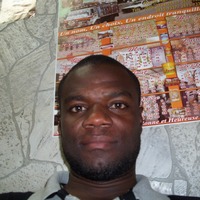Isaac Avendaño - Profile on Academia.edu (original) (raw)

Related Authors
Uploads
Papers by Isaac Avendaño
In the twenty-first century's first decade, Pentecostal Christian congregations are now a signifi... more In the twenty-first century's first decade, Pentecostal Christian congregations are now a significant cultural force in Haiti and its diaspora. Those who self-identify as Pannkotis (Pentecostal) comprise a striking variety-from independent "heavenly armies" to mainline congregations closely modeled after those in the United States. As Haitian Pentecostals face ongoing socioeconomic strife, they engage in exuberant praise and worship while deploying an arsenal of musical "weapons" to fight for survival, defend their theological turf, and articulate who they are and hope to become. Foregrounding the interplay of positionality and faith, I argue that embodied musical practice is, for two distinct Pentecostal groups, something of a two-edged sword: It slices through oppressive spiritual barriers to attack a common "satanic" enemy, but it also guards the social and theological walls separating them. This paradox of Pentecostal music making-its spiritually amalgamative but socially divisive potential-lies at the heart of my discussion.
In the twenty-first century's first decade, Pentecostal Christian congregations are now a signifi... more In the twenty-first century's first decade, Pentecostal Christian congregations are now a significant cultural force in Haiti and its diaspora. Those who self-identify as Pannkotis (Pentecostal) comprise a striking variety-from independent "heavenly armies" to mainline congregations closely modeled after those in the United States. As Haitian Pentecostals face ongoing socioeconomic strife, they engage in exuberant praise and worship while deploying an arsenal of musical "weapons" to fight for survival, defend their theological turf, and articulate who they are and hope to become. Foregrounding the interplay of positionality and faith, I argue that embodied musical practice is, for two distinct Pentecostal groups, something of a two-edged sword: It slices through oppressive spiritual barriers to attack a common "satanic" enemy, but it also guards the social and theological walls separating them. This paradox of Pentecostal music making-its spiritually amalgamative but socially divisive potential-lies at the heart of my discussion.










